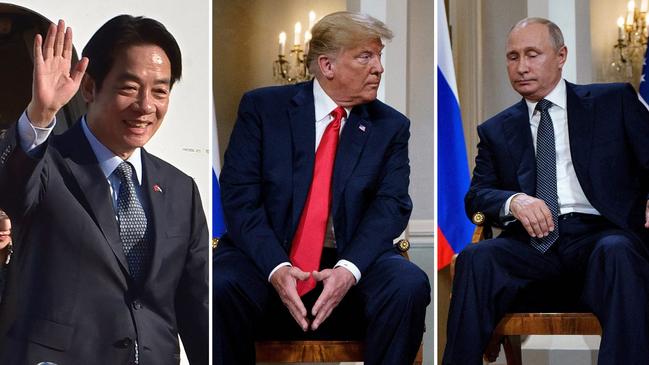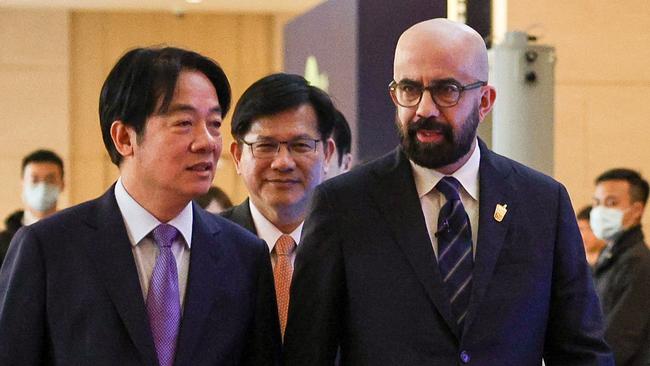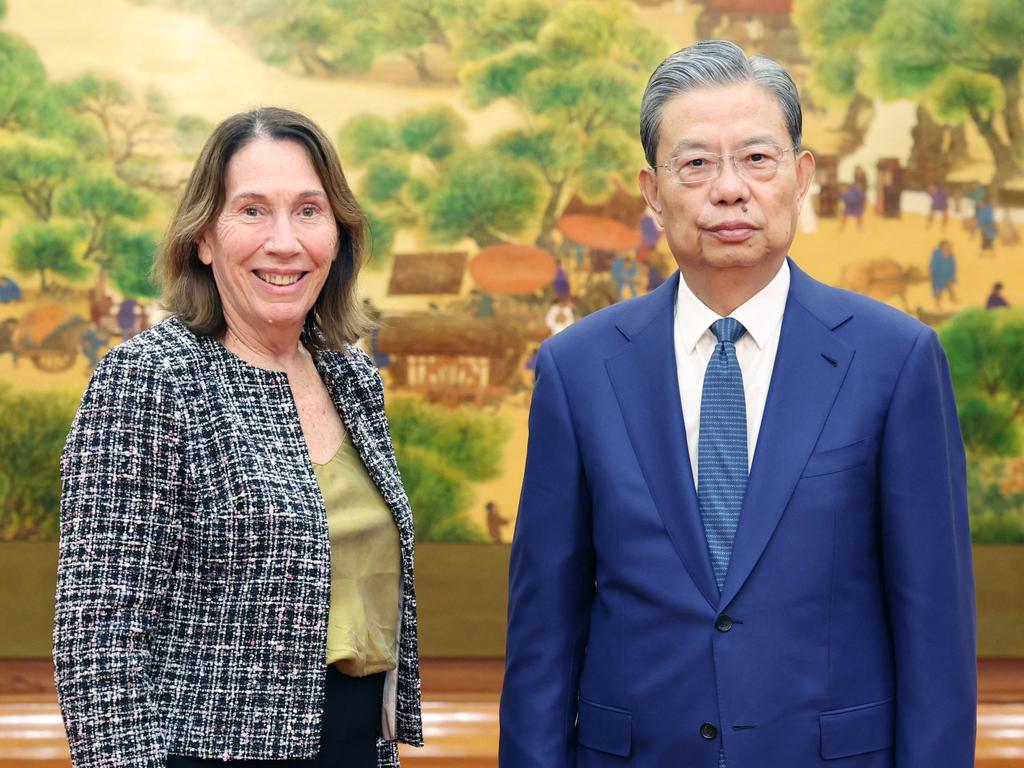Donald Trump jolts Taiwan with ‘cold reality’ of realpolitik as US cuts Ukraine out of negotiations with Russia
There is a sense of shock among senior Taiwanese officials as they watch the President of their most important security backer America give Ukraine a lesson in the ‘cold reality’ of international relations.

There is a sense of shock among senior Taiwanese officials as they watch the President of their most important security backer, America, give Ukraine a lesson in the “cold reality” of international relations.
Donald Trump, who talks about his desire to make a big deal with China’s President Xi Jinping, is not trusted among officials in Taiwanese President Lai Ching-te’s administration.
Officials in Taipei had assessed that Mr Trump was more likely to make concessions to Russia than to China, but the haste and breadth of what Washington has given Vladimir Putin in recent days has gone beyond their expectations.
“The speed caught them by surprise – and the extent,” Kevin Magee, who previously served as Australia’s top diplomatic representative in Taipei, told The Australian.
Since Vladimir Putin invaded Ukraine in February 2022, Taipei has warned: “Ukraine today, Taiwan tomorrow.”
Now as they watch America’s President blame Ukraine for being invaded by its giant neighbour, Taiwan’s government is struggling to even find words to address its dilemma.
Alexander Huang, a former deputy minister of Taiwan’s Mainland Affairs Council, said Washington’s approach demonstrated the “cold reality” of international politics.
“As (former US secretary of state) Antony Blinken said: If you’re not at the table, you’re on the menu,” Dr Huang, director of international affairs for Taiwan’s main opposition party, the Kuomintang, told The Australian. “Ukraine is now on the menu. And Taiwan could be even worse. We could be on the menu even before a war.”
President Lai has not directly commented on what is happening to Ukraine, but he tried to reassure people in Taiwan in comments on Wednesday.
“In a rapidly changing international landscape, Taiwan is a chess player, not a chess piece,” he said.
Late on Thursday, Lai gave a speech at the Halifax International Security Forum, an event which champions coordination among democracies and was being held for the first time in Taipei to draw connections between Taiwan and Ukraine on the third anniversary of Russia’s invasion. Lai did not mention America’s negotiations with Putin’s team in his speech, but noted that “Russia’s invasion of Ukraine is still ongoing.”
In a sign of how off balance many are about America’s Russian outreach, the security conference also included a closed-door session called “Victory in Ukraine = Message to the CRINKs” (an abbreviation for China, Russia, Iran and North Korea).

Only three months ago, former Taiwanese president Tsai Ing-wen told the same Halifax International Security Forum the US should prioritise helping Ukraine, rebuffing arguments put by incoming Trump officials that Washington should instead focus on Taiwan.
“They should do whatever they can to help the Ukrainians,” Ms Tsai said at the forum. “We (Taiwan) still have time. A Ukrainian victory will serve as the most effective deterrent to future aggression.”
Many in Taipei’s foreign policy community say the Taiwanese government is struggling to adjust to the jolt of the new US administration.
“There is a sense of unease among Lai officials,” Kwei-Bo Huang, professor of diplomacy at National Chengchi University College of International Affairs, told The Australian.
“The suddenness of America’s change has been shocking to them. That’s why you’ve seen the silence,” said Professor Huang, who previously served as an adviser in the Kuomintang, or Nationalist, party.
There has been a hope that senior advisers with a long track record supporting Taiwan, such as Secretary of State Marco Rubio and National Security Adviser Mike Waltz, will act as a brake on any policies that could seriously harm Taipei. But Taipei had already assessed it needs to do more to respond to Mr rump’s transactional worldview.
Mr Lai last week said his administration would seek to raise defence spending to more than 3 per cent of Taiwan’s GDP. It is currently around 2.5 per cent.
As part of that, Taipei is reportedly planning a weapons purchase from the US worth $11bn-$16bn.
Mr Trump has repeatedly complained about Taiwan’s semiconductor industry. “Taiwan took our chip business away. We want that business back,” he said last week.
He has threatened a tariff of 25 per cent or higher, which he said could start in April.
Taiwanese economic officials have argued his claims are based on a misunderstanding, stressing Taiwan’s semiconductor success has been a crucial element in helping the US maintain its technological edge. “The US has won, thanks to Taiwan,” Chen Po-chih, a senior adviser to Mr Lai and a former head of Taiwan’s National Development Council, said this week.
However unfair they think the American president’s rhetoric, officials in Taipei concede that, as well as increasing spending on US military kit, they will need to further encourage its semiconductor champion TSMC and others to invest more in the US.
For all the concern in decision making circles, many in Taiwan seem to be more relaxed about a Trump presidency.
A poll by Taiwan Public Opinion Foundation taken just before Trump took office found that most Taiwanese (63 per cent) were not worried that relations with America would deteriorate under the Trump administration.
Many also think that, despite the rhetoric used by their government, Taiwan’s situation with China is different to Ukraine’s with Russia.
“The Taiwanese generally are pretty blasé about the threat from the mainland,” said Mr Magee, the former Australian diplomat, who is now a fellow at the Australia-China Relations Institute. “It’s not a new thing. People have just got used to it.”






To join the conversation, please log in. Don't have an account? Register
Join the conversation, you are commenting as Logout